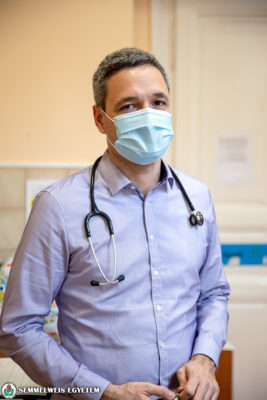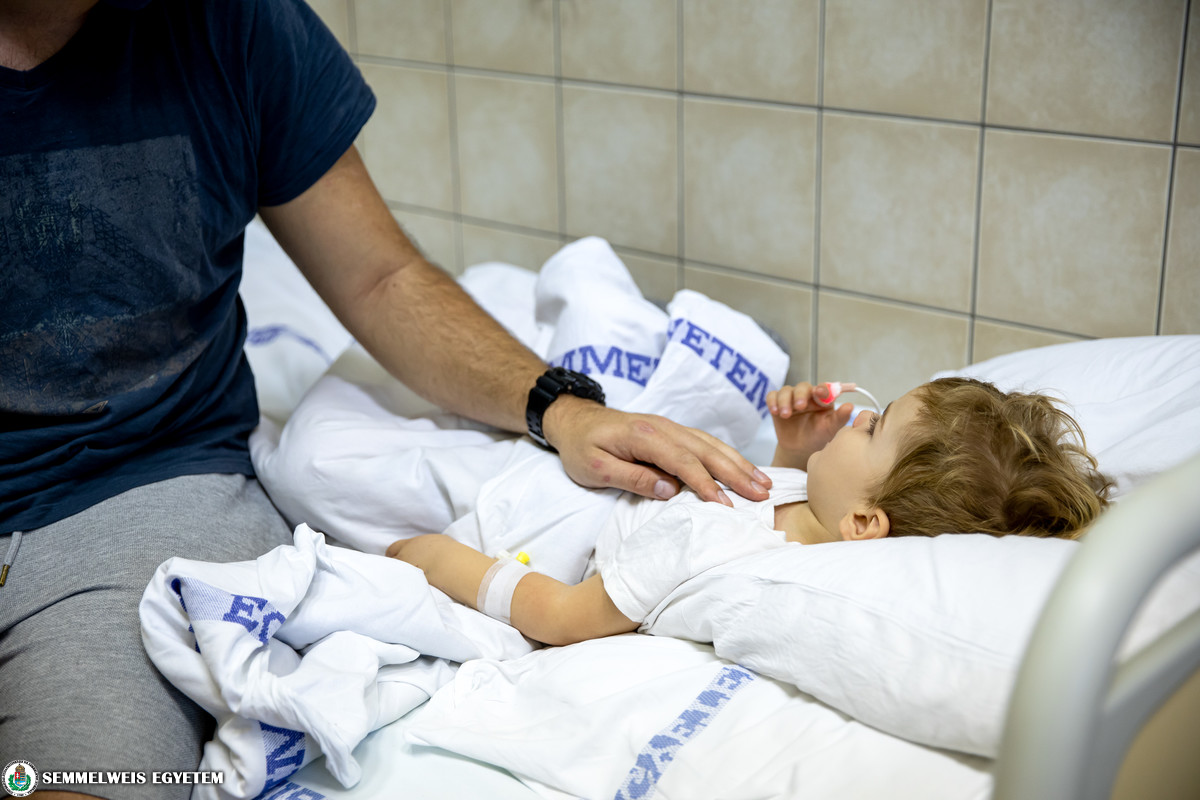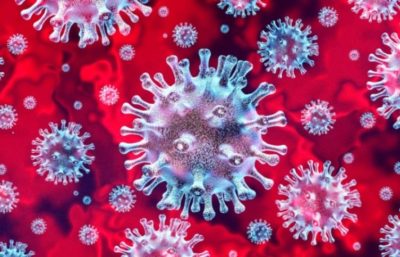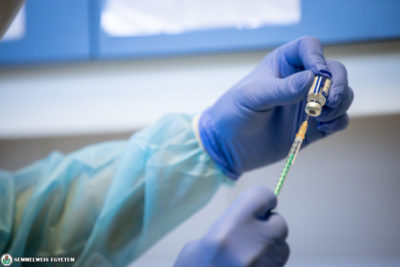The 2-year-old boy has been released from hospital after recovering from Paediatric Inflammatory Multisystem Syndrome (PIMS), a rare but serious complication of COVID-19 in children, which was first diagnosed at Semmelweis University. Based on the antibody test, the affected child may have been exposed to the coronavirus in the past weeks or months, yet SARS-CoV-2 was no longer detectable at the time of his hospitalization, but the symptoms of PIMS were observed. As a result of the immunoglobulin- and steroid therapy started immediately, the condition of the little boy showed steady improvement.
In most cases, the coronavirus causes mild symptoms in children, however cases of Paediatric Inflammatory Multisystem Syndrome (PIMS), a severe multiorgan inflammation casued by the coronavirus were already recorded on an international level during the first wave of the epidemic. The first such case was diagnosed at Semmelweis University’s 2nd Department of Paediatrics on 21 November 2020. The affected child was taken to the department with high fever, a rash all over his body, conjunctivitis, lymph node enlargement and pneumonia, which are symptoms similar to those of systemic inflammation and are also characteristic of the so-called Kawasaki disease.

“His PCR test was negative, however based on the antibody test, it turned out that at some point he had already been infected by the coronavirus but its rare complications appeared only after the infection was over. The reason for the time-lag is that it is not the infection responsible for the symptoms, but an abnormal immune response appearing after the recovery”, said Dr. Tamás Constatin, associate professor.
After the diagnosis, a high-dose immunoglobulin- and steroid therapy was started immediately, as recommended in such cases. As a result of the treatment, the condition of the child was continuously improving, and he was released from hospital 8 days after.
In case of children, the following symptoms may indicate PIMS associated with coronavirus infection: prolonged high fever, severe weakness, drowsiness, somnolence, unconsciousness, red eyes (conjunctivitis), red cracked lips, tongue of strawberry colour, swollen hands and legs, lymph node enlargements in the neck, abdominal pain, diarrhea, vomiting.
“If the parents notice these symptoms on their child, it is highly recommended to consult the child’s paediatrician or the competent Paediatric Emergency Care immediately, since the symptoms are severe in most of the cases and the condition of the child may deteriorate rapidly.”, pointed out Dr. Tamás Constantin.

PIMS is a rare, but very serious complication of COVID-19 infection in children. Risk factors are not known and the severity of the disease cannot be linked to other co-morbidities or chronic diseases, like in case of adults. It is important to highlight that abdominal pain may be misleading: the symptoms may be similar to those of enteritis or appendicitis. Therefore, the presence of additional symptoms, such as high fever, extreme inflammatory laboratory values and other non-abdominal symptoms may indicate PIMS. Since the coronavirus infection in children is usually asymptomatic, its possibility cannot be ruled out based only on negative medical history.
“The paediatric departments of the university are prepared for the treatment of children requiring hospitalization and are providing medical care to children with positive COVID-19 test results in the second wave of the epidemic. Unlike adults, they are not taken to the department because of typical COVID symptoms, but with other problems, in addition to being asymptomatic COVID-19 infection. However, asymptomatic infection can be equally dangerous to the surroundings.”, Dr. Attila Szabó, Vice-Rector for Clinical Affairs said.
The suspected and proven cases of COVID-19 infection are treated and examined in isolation at the department. So far, 30 COVID-19 cases have been treated in the in-patient care of the paediatric departments of Semmelweis University, while there have been 27 infected patients at the out-patient care units.
The 2nd Department of Paediatrics of Semmelweis University accepts children with PIMS from the entire country, depending on its actual capacity and provides medical consultations.
Pálma Dobozi
Photo: Attila Kovács – Semmelweis University
Translation: Katalin Illés-Romhányi


